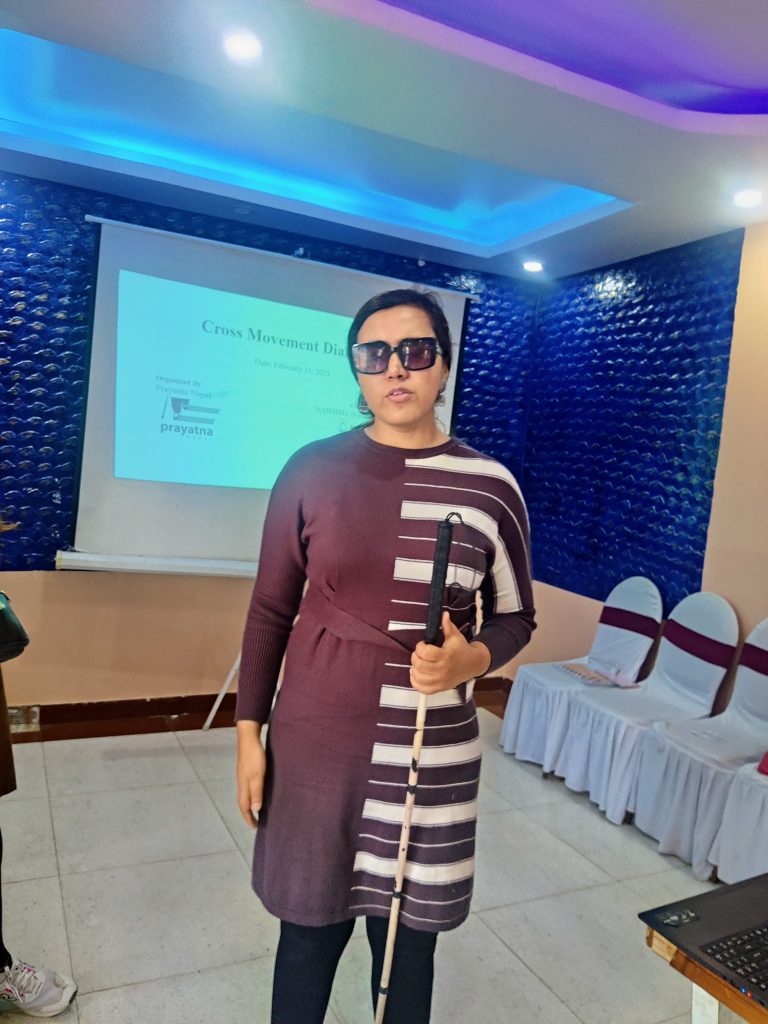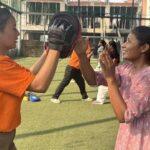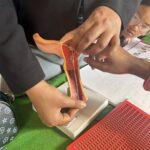
Although person with disabilities work in collaboration with various movements, they are not very well-informed about the issue of disability, which is also proven by the neglect of accessibility in the programs they conduct, realizing the fact Prayatna Nepal has conducted cross movement dialogue program with women human right defenders of Rupandehi district. This dialogue was organized with the aim of informing women human rights defenders on the issue of disability and making the movement a good example of accessibility and inclusion.
This program was formally opening by Ms. Sabitra Ghimire joint secretary of women human right defender. In the opening of the program, she expressed that there was not much discussion on the issue of disability in this network, even though women with disabilities leaders also work together with the women human rights defenders. But this kind of program is going to be held for the first time. During the introduction, most of the participants expressed that they have some kind of connection with person with disabilities.
After that, session was moved on concept definition, and types of disabilities. Which was facilitate by Ms. Sarita Lamichhane chair person of Prayatna Nepal. When asked about the prior understanding of disability in that session, it was found that most of the participants were not very clear about the types and definitions of disability.
In the middle of her presentation, she tried to clarify with the help of the short video. Along with this, she did inclusion assessment of participant’s organization through travelling together game. Through guiding question Prayatna Nepal team got to know majority of the organization did not consider disability inclusion on their plan policy and program.
After her presentation, the next presenter was Ms. Sabitra Ghimire joint secretary of women human right defenders. The topic of presentation was 'Inclusion Status of women With Disabilities and needful Action of women human right Movement in Nepal. She highlighted on the data of women with disabilities. She focused on the situation of women with disabilities access to education, employment and health, meaningful participation, equal access to services and facilities. She also shared the way forward for the inclusion of women with disabilities. In closing session participants share interesting movement of the program. Majority of the participants like inclusion assessment of their own organization.



